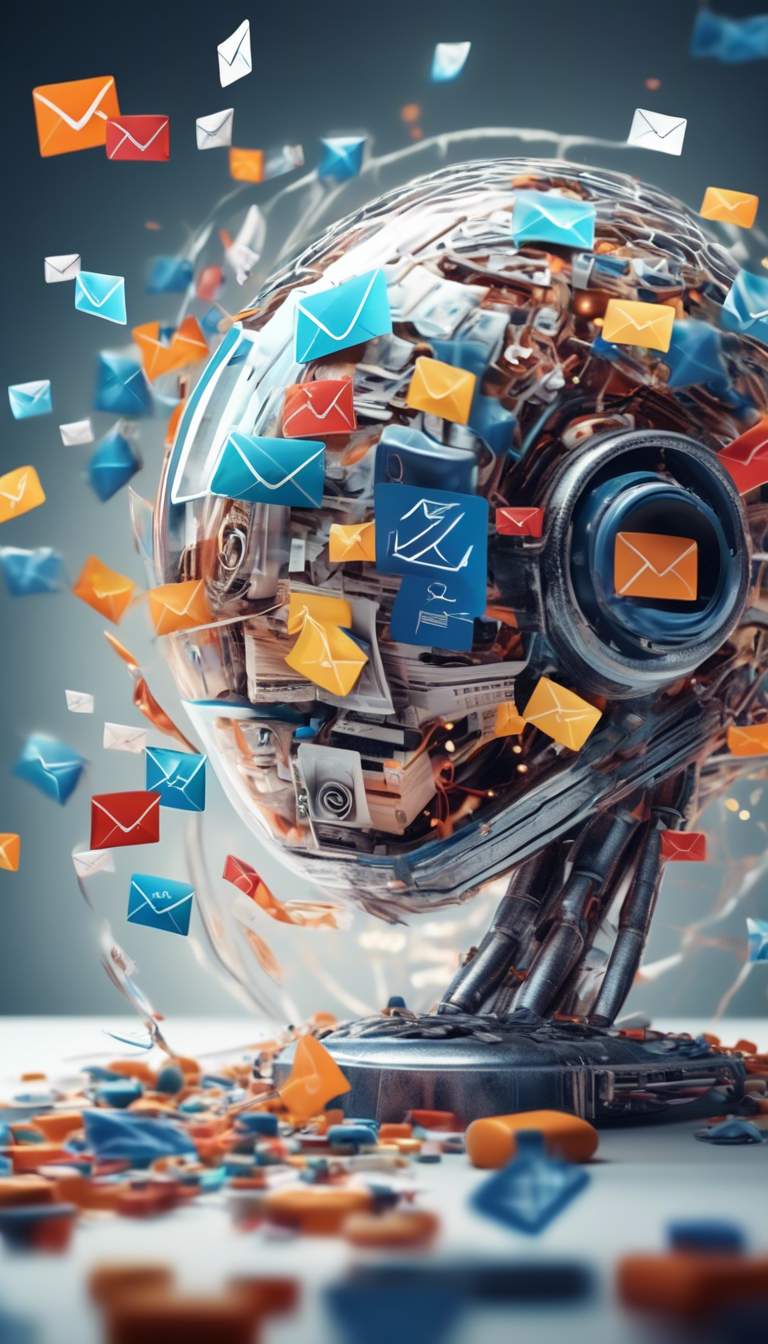Leveraging Email Marketing AI for Personalized Customer Engagement
In the rapidly evolving landscape of digital marketing, businesses are increasingly turning to technology to enhance their strategies. One of the most powerful tools at their disposal is artificial intelligence, especially in the realm of email marketing. By leveraging email marketing AI, companies can significantly improve personalization and customer engagement, ultimately driving better results.
Email marketing has always been a vital part of digital strategies. Still, with AI integration, it has reached new heights. AI can analyze vast amounts of data, allowing businesses to understand their customers on a deeper level. This analysis leads to delivering tailored content that resonates with individual preferences and behaviors.
Understanding Customer Behavior
The key to effective email marketing lies in understanding the audience. AI tools analyze customer behavior based on various factors, including:
- Purchase history
- Email interaction patterns
- Browsing history
- Demographics
By processing this data, AI identifies trends and predicts future behaviors. For example, if a customer frequently browses a specific product category, AI can automatically tailor emails featuring related items, promotions, or content that aligns with their interests. This proactive approach significantly boosts engagement rates.
Personalization at Scale
Traditional email marketing often suffers from a one-size-fits-all approach, but AI changes the game by offering personalized experiences at scale. Businesses can now create dynamic content that adapts to the recipient’s profile.
Imagine receiving an email that not only acknowledges your previous purchases but also suggests new products based on your preferences. This level of personalization can turn an ordinary email into a conversation, fostering a deeper connection between the customer and the brand.
Optimizing Send Times and Frequency
AI plays a crucial role in determining the best times to send emails. By analyzing data on when customers are most likely to open and engage with emails, businesses can optimize their send times for maximum impact. Here are a few techniques AI uses for optimization:
- Predictive Analytics: AI forecasts customer responses, allowing marketers to align their strategies accordingly.
- A/B Testing: Automated A/B tests help determine which subject lines, content types, or visuals get the best engagement.
- Segmentation: AI segments audiences into different groups based on behaviors and demographics, ensuring tailored messaging.
This level of optimization not only increases open rates but also enhances the overall effectiveness of email campaigns.
Content Creation and Curation
The quality of content plays a significant role in user engagement. Email marketing AI can assist with content creation by proposing ideas and curating material that aligns with customer interests. By using natural language processing (NLP), AI can:
- Generate compelling subject lines
- Create personalized email copy
- Suggest relevant images and layout designs
This functionality allows marketers to focus on strategic decisions while ensuring that their emails are relevant and engaging. Automating the content creation process saves time and resources, leading to higher productivity.
Measuring Effectiveness
AI-powered tools make it easier to analyze the success of email campaigns. Detailed metrics provide insights into open rates, click-through rates, and conversion rates. This data helps businesses understand what works and what doesn’t, enabling them to refine their strategies accordingly.
For instance, if a particular type of promotion yields higher engagement, businesses can replicate that success in future campaigns. Continuous learning from AI enables marketers to stay agile and responsive to changing consumer behaviors.
Ethical Considerations
However, leveraging email marketing AI comes with responsibilities. Marketers must prioritize data privacy and comply with regulations like GDPR. Transparency about data use and obtaining consent are crucial to building trust. Using AI effectively involves not just technical prowess but also a commitment to ethical marketing practices.
AI into email marketing strategies marks a significant evolution in how brands interact with their customers. By understanding customer behavior, offering personalized experiences, optimizing communication, and measuring effectiveness, businesses can enhance engagement and ultimately drive growth. As AI technology continues to develop, its potential in reshaping email marketing strategies becomes even more exciting.
The Future of Email Marketing: How AI is Shaping Campaign Strategies
The landscape of email marketing is changing rapidly, and a significant driver of this transformation is artificial intelligence (AI). As marketers strive to increase engagement and conversion rates, AI provides tailored solutions that enhance campaign strategies. The integration of AI tools in email marketing allows for improved personalization, data analysis, and automation, which can significantly impact the effectiveness of email campaigns.
Personalization at Scale
One of the most compelling advantages of AI in email marketing is its ability to personalize content for individual recipients at scale. Traditionally, marketers relied on broad segmentation to craft their emails. However, AI allows for hyper-personalization by analyzing user behavior, preferences, and demographic data. This means that emails can dynamically change based on who is receiving them.
For instance, an AI-driven email marketing platform can automatically send unique product recommendations to users based on their past purchases or browsing history. This targeted approach increases the chances of engagement tremendously. Here are some ways AI enhances personalization:
- Dynamic content that adjusts based on user behavior.
- Predictive analytics to forecast future purchasing behavior.
- Real-time adjustments in strategies based on engagement levels.
Enhanced Segmentation
Segmentation has always been a vital component of any email marketing strategy. AI takes segmentation to the next level by analyzing vast amounts of data to identify patterns and trends that human marketers might overlook. Instead of merely dividing lists by age or location, AI can factor in numerous variables, such as:
- Email open rates and click-through rates.
- Customer lifetime value and engagement metrics.
- Behavioral patterns leading to conversions.
This enhanced segmentation allows marketers to send the right message to the right audience, further optimizing their email marketing efforts.
Automated Campaign Management
Manual campaign management is not only time-consuming but can also lead to inconsistencies. AI-powered platforms can automate several aspects of email marketing campaigns, including:
- A/B testing to determine the most effective content and subject lines.
- Scheduling emails at optimal times for engagement.
- Automated follow-ups based on user interaction.
By utilizing automation, marketers can focus more on strategy and creativity while leaving repetitive tasks in the hands of AI technology.
Data Analysis and Insights
Data is vital to understanding the performance of email marketing strategies. AI simplifies the process of data analysis and unveils actionable insights by processing complex datasets quickly. For example, AI can identify which campaigns led to the highest conversion rates and provide recommendations for future emails. This includes:
- Tracking user engagement metrics intuitively.
- Analyzing customer feedback for improved messaging.
- Monitoring competitors and market trends to adapt strategies accordingly.
Through these insights, marketers can make informed decisions, optimizing campaign effectiveness continuously.
Catering to Consumer Preferences
Consumers today expect brands to understand their needs and preferences. AI helps brands meet these expectations by analyzing past interactions and predicting future behaviors. Features like sentiment analysis and natural language processing can gauge consumer sentiments from previous emails and social media interactions, informing future content creation. This keen insight supports:
- Creating content that resonates with target audiences.
- Timing emails for maximum impact.
- Adjusting tone and style based on audience preferences.
Future Trends in Email Marketing AI
Looking ahead, it’s clear that AI will continue to shape email marketing strategies dramatically. Here are some potential trends we can expect:
- Greater automation in response generation and customer service.
- Improved predictive analytics for real-time decision-making.
- Increased usage of AI-driven video content in emails.
As marketers embrace more advanced AI technologies, email campaigns will become increasingly sophisticated and effective, setting a new standard for engagement and conversion.
Ultimately, the fusion of email marketing and AI is not just a trend; it’s a future-defining shift that promises to revolutionize how businesses communicate with their customers. Embracing these innovations allows marketers to stay ahead of the curve and maximize their campaign performance effectively.
Conclusion
As we navigate through the dynamic landscape of digital marketing, the significance of email marketing combined with the power of artificial intelligence cannot be overstated. With consumer preferences evolving and competition intensifying, businesses are looking for innovative ways to maintain engagement. Email marketing AI emerges as a transformative tool that not only enhances personalization but also optimizes campaign strategies, ensuring that brands stay connected with their audiences in meaningful ways.
When it comes to personalized customer engagement, the integration of AI in email marketing takes customer relationship management to unprecedented heights. Traditional methods of segmenting audiences and crafting generic messages simply no longer cut it. Customers now expect a tailored experience that speaks directly to their interests and behaviors. Using machine learning algorithms, AI can analyze vast amounts of user data with remarkable speed, identifying patterns and preferences that human marketers might overlook. This data-driven insight allows brands to create hyper-personalized content, effectively addressing the unique needs of individual customers.
For instance, AI can track previous interactions, purchase history, browsing behavior, and even sentiment analysis to tailor emails that resonate with each recipient. Imagine receiving an email that not only contains products you’ve shown an interest in but also includes personalized recommendations based on your past behavior. This level of personalization not only improves open and click-through rates but fosters a sense of loyalty and trust in the brand. In an era where consumers are inundated with countless marketing messages, standing out through personalization via AI allows businesses to create a competitive advantage and deliver true value to their audience.
Moreover, the future of email marketing is heavily influenced by the continuous advancements in AI technology. As algorithms become increasingly sophisticated, marketers are adopting AI-driven tools that enhance their campaign strategies significantly. Automated systems can analyze real-time data and predict customer behaviors, empowering marketers to optimize sending times, choose the most engaging subject lines, and even design dynamic content that adjusts based on user interaction. The result is a more agile approach to email campaigns, where adjustments can be made on-the-fly, ensuring that the content remains relevant and appealing.
Additionally, AI can facilitate A/B testing at an unparalleled scale. Instead of relying on manual testing of a few variations, AI can process hundreds or thousands of parameters simultaneously. This means more refined testing, faster results, and, ultimately, more effective strategies that are built on empirical evidence rather than guesswork. It allows marketers to focus on creative strategy, knowing that AI handles the heavy lifting of data analysis and optimization.
Furthermore, the integration of AI in email marketing extends beyond just personalization and analytics. The rise of natural language processing (NLP) presents new opportunities for customer interaction. Chatbots and smart virtual assistants are being integrated into email campaigns, offering customers real-time assistance right from their inboxes. This adds a layer of convenience that modern consumers appreciate, enhancing overall customer satisfaction and further driving engagement.
However, as we embrace the integration of AI in email marketing, businesses must prioritize ethical considerations. Transparency in how customer data is used and the importance of consent can’t be overlooked. Customers must trust that their information is protected and utilized in ways that genuinely enhance their experience. By maintaining transparency and adherence to data protection regulations, companies can cultivate a strong relationship built on trust and mutual benefit.
Email marketing AI is not just a passing trend; it’s a critical component of modern marketing strategies that empowers businesses to engage customers more effectively than ever. By leveraging AI for personalized customer engagement and adopting advanced strategies shaped by machine learning, companies can navigate the challenges of the digital landscape. The future is bright for email marketing, and with AI leading the charge, businesses have an incredible opportunity to forge deeper connections with their audiences, drive engagement, and ultimately, achieve their marketing goals. Adapting to these advancements means not only staying ahead of competitors but truly understanding and responding to consumer needs in ways that were previously unimaginable. Embracing AI in email marketing is the key to unlocking a future of collaborative engagement between brands and their valued customers.


